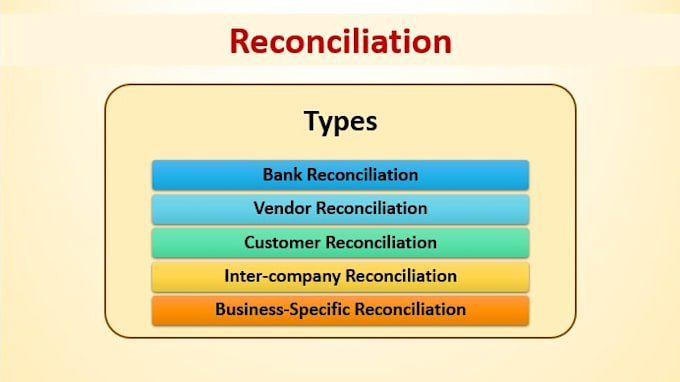Financial Dynamics: The Impact of Borrowing Money from Friends and Family
Understand the complexities of family financial support
When face financial challenges, many people consider turn to those closest to them for help. Borrow money from friends and family members oftentimes seem like a convenient and less intimidating option compare to traditional lending institutions. Notwithstanding, this financial arrangement come with its own unique set of advantages and disadvantages that extend beyond mere monetary considerations.
The decision to ask love ones for financial assistance is seldom straightforward. It involves navigate complex emotional territories and relationship dynamics that can have lasting impacts. Before approach friends or family members for a loan, it’s crucial to understand the full spectrum of potential outcomes.
Advantages of borrowing from friends and family
Flexible repayment terms
One of the virtually significant benefits of borrow from love ones is the potential for flexible repayment arrangements. Unlike banks and other financial institutions that enforce strict payment schedules, friends and family members may be more understanding about delay payments or restructure the loan if your financial situation changes.
This flexibility can provide breathing room during difficult financial periods without the stress of accrue late fees or damage your credit score. Many family loans come with the unspoken understanding that life happen, and repayment terms can adjust consequently.
Lower or no interest rates
Traditional loans typically come with interest rates that importantly increase the total amount repay over time. In contrast, friends and family members oftentimes lend money with minimal or no interest, make this option considerably more affordable in the long run.
For someone deal with high interest debt or need funds for an important purchase, the savings from an interest free loan can be substantial. This financial advantage exclusively makes family loans attractive for many borrowers who want to avoid the compounding costs of commercial lending.
No formal credit checks
People with poor credit histories or limited credit profiles oftentimes face significant barriers when apply for conventional loans. Personal loans from friends and family typically don’t involve credit checks, make funds accessible to those who might differently be rejected by financial institutions.
This accessibility can be peculiarly valuable for young adults build credit, individuals recover from financial setbacks, or those deal with unexpected emergencies who need immediate assistance without the scrutiny of their financial past.
Faster access to funds
The formal loan application process through banks can be time consume, involve extensive paperwork, verification procedures, and waiting periods. In contrast, borrow from personal connections oftentimes provide immediate access to need funds without bureaucratic delays.
This speed can be crucial during emergencies when time is of the essence. Whether face medical bills, urgent home repairs, or other time sensitive financial needs, the quick availability of funds from family members can make a significant difference in manage critical situations.
Potential for strengthened relationships
While financial transactions can strain relationships, they can too strengthen bonds when handle decently. Successfully repay a loan demonstrate responsibility and trustworthiness, potentially deepen the connection between borrower and lender.
The act of help someone in need can likewise be rewarding for the lender, create a positive share experience. Many families report that thoughtfully manage financial assistance has really brought them confining unitedly through the process of support one another through difficult times.
Disadvantages of seek financial help from loved ones
Relationship strain and changed dynamics
Possibly the virtually significant risk of borrow from friends and family is the potential for damage relationships. Money matters can introduce tension, particularly if repayment become problematic or take foresight than expect. The lender may feel uncomfortable ask about repayment, while the borrower might experience guilt or shame about the debt.
The power dynamic between the parties oftentimes shift, create an imbalance that can affect interactions intimately beyond financial discussions. Many people report feel that every purchase or lifestyle choice become subject to scrutiny when they owe money to someone close to them.
Lack of formal documentation
Informal loans oftentimes lack proper documentation, create room for misunderstandings about loan terms, repayment expectations, and other critical details. Without clear write agreements, both parties may have different recollections about the arrangement, lead to confusion and potential conflict.
This lack of formality can too create problems if unexpected situations arise, such as major life changes for either party or disagreements about whether the money was a loan or a gift. Clear documentation protect both the borrower and the lender by establish reciprocally understand expectations.

Source: nevertherightword.com
Family gatherings and social awkwardness
Outstanding loans can cast a shadow over family gatherings and social events. Both parties may feel uncomfortable or self-conscious about the financial obligation, make antecedent enjoyable interactions tense or awkward. This discomfort oftentimes exextendseyond equitable the borrower and lender to affect the broader social group.
Holiday celebrations, birthdays, and regular get together scan become stressful occasions kinda than opportunities for connection. The financial relationship may become the elephant in the room that everyone is aware of but nobody direct address.
Risk of enabling unhealthy financial behaviors
Easy access to funds from family members might prevent some borrowers from develop crucial financial management skills. Kinda than learn to budget efficaciously or build emergency savings, they may develop a pattern of rely on personal loans to address financial shortfalls.
This dynamic can be peculiarly problematic when the underlying issue involves spending habits or financial literacy gaps. Without address these root causes, borrow funds may provide temporary relief while potentially worsen long term financial health.
Financial risk for the lender
When lend money to family members, the lender assumes financial risk that could impact their own financial stability. If the borrow amount is substantial or if repayment doesn’t occur as expect, the lender might face their own financial difficulties as a result of their generosity.
This risk become specially concern when lenders dip into retirement savings, emergency funds, or other essential financial resources to help their loved ones. The desire to help shouldn’t come at the expense of the lender’s own financial security.
Best practices for family financial assistance
Create clear written agreements
To minimize misunderstandings and protect relationships, document the loan terms in writing, evening for arrangements between close friends or family members. This agreement should specify the loan amount, any interest, the repayment schedule, and contingency plans if circumstances change.
While formal contracts might seem unnecessary among love ones, have clear write terms help prevent the memory gaps and misinterpretations that oftentimes lead to conflict. The process of create this documentation likewise ensure both parties have full consider and agree to the arrangement.
Consider a partial solution
Alternatively of request the entire amount need from one person, consider combine resources from multiple sources. This approach distribute the financial burden and reduce the risk to any single relationship. It might include a smaller family loan combine with personal savings, bank financing, or other funding sources.
This strategy likewise demonstrate personal financial commitment and responsibility, show that you’re not but rely on others to solve your financial challenges but are actively participate in the solution.
Explore alternative financial resources start
Before approach friends and family, investigate traditional lending options, community assistance programs, payment plans with creditors, or other financial resources. These alternatives might provide the need funds without risk personal relationships.
Many people discover that options exist that they weren’t antecedent aware of, such as hardship programs, specialized loans for specific purposes, or financial assistance through employers or professional organizations. Exhaust these possibilities show diligence and make family borrow a last resort quite than a first option.
Maintain transparent communication
Throughout the borrowing and repayment process, maintain open communication about your financial situation and ability to meet agree upon terms. If difficulties arise, address them proactively instead than avoid conversations about money.
Regular update about repayment progress, flush when everything is proceeded as plan, help maintain trust and demonstrate respect for the arrangement. This transparencpreventsnt misunderstandings and show that you take the financial obligation gravely.
Prioritize repayment
Make repay personal loans a financial priority, yet if it means adjust your lifestyle or delay othernon-essentiall purchases. Prompt repayment demonstrate respect for the help receive and preserve the relationship.
Consider set up automatic transfers or create reminders to ensure payments aren’t overlooked. Take these steps show commitment to honor your obligation and appreciation for the assistance provide during your time of need.
Alternatives to direct financial borrowing
Request specific forms of help
Alternatively of ask for money direct, consider request specific forms of assistance that address your needs without a cash transfer. This might include ask family members to co-sign a loan, temporarily provide housing, or help with childcare to reduce expenses.

Source: nextavenue.org
These alternatives oftentimes feel more comfortable for both parties and can provide substantial financial relief without create a direct debtor creditor relationship. They leverage the resources and capabilities of your support network in ways that may feel more natural and less transactional.
Skills exchange and bartering
Offer to exchange skills or services instead than borrow money. If you need financial help, propose provide valuable work in return, such as home repairs, professional services, or other assistance that benefit the potential lender.
This approach maintain dignity and equality in the relationship while tranquilize address financial needs. It transforms what might be an uncomfortable charity situation into a reciprocally beneficial exchange that recognize the value each person bring to the table.
Crowdfund among wider networks
For larger financial needs, specially those relate to medical expenses, education, or emergencies, consider crowdfund platforms that allow multiple people to contribute smaller amounts. This ddistributesthe request across a broader network quite than place the burden on one or two close relationships.
Modern crowdfunding platforms make it easy to share your story and specific needs with extended family, friends, colleagues, and eventide strangers who might be moved to help. This approach frequentlyfeelsl less personally burdensome than direct requests to individual family members.
Financial counseling and long term solutions
While borrow from family members might address immediate financial needs, it’s evenly important to develop strategies for long term financial stability. Consider work with a financial counselor to create a sustainable budget, build emergency savings, and address any underlying financial management issues.
Many nonprofit organizations offer free or low cost financial counseling services that can help identify the root causes of financial difficulties and develop practical solutions. Take these steps demonstrate to family lenders that you’re committed not exactly to repay their specific loan but to improve your overall financial health.
The decision to borrow money from friends or family members involve weigh both financial and relational considerations. While these personal loans can provide accessible financial support during difficult times, they besides introduce complexities that commercial transactions typically avoid. By approach these arrangements thoughtfully and with clear communication, it’s possible to receive need financial assistance while preserve the relationships that matter virtually.
Remember that financial interdependence is a natural part of family and community life. When handle with respect, transparency, and commitment to repayment, borrow from love ones can be a positive experience that strengthen bonds quite than strain them. The key lie in treat these financial arrangements with the same seriousness you’d apply to any important financial decision, while acknowledge the additional emotional dimensions involve.



